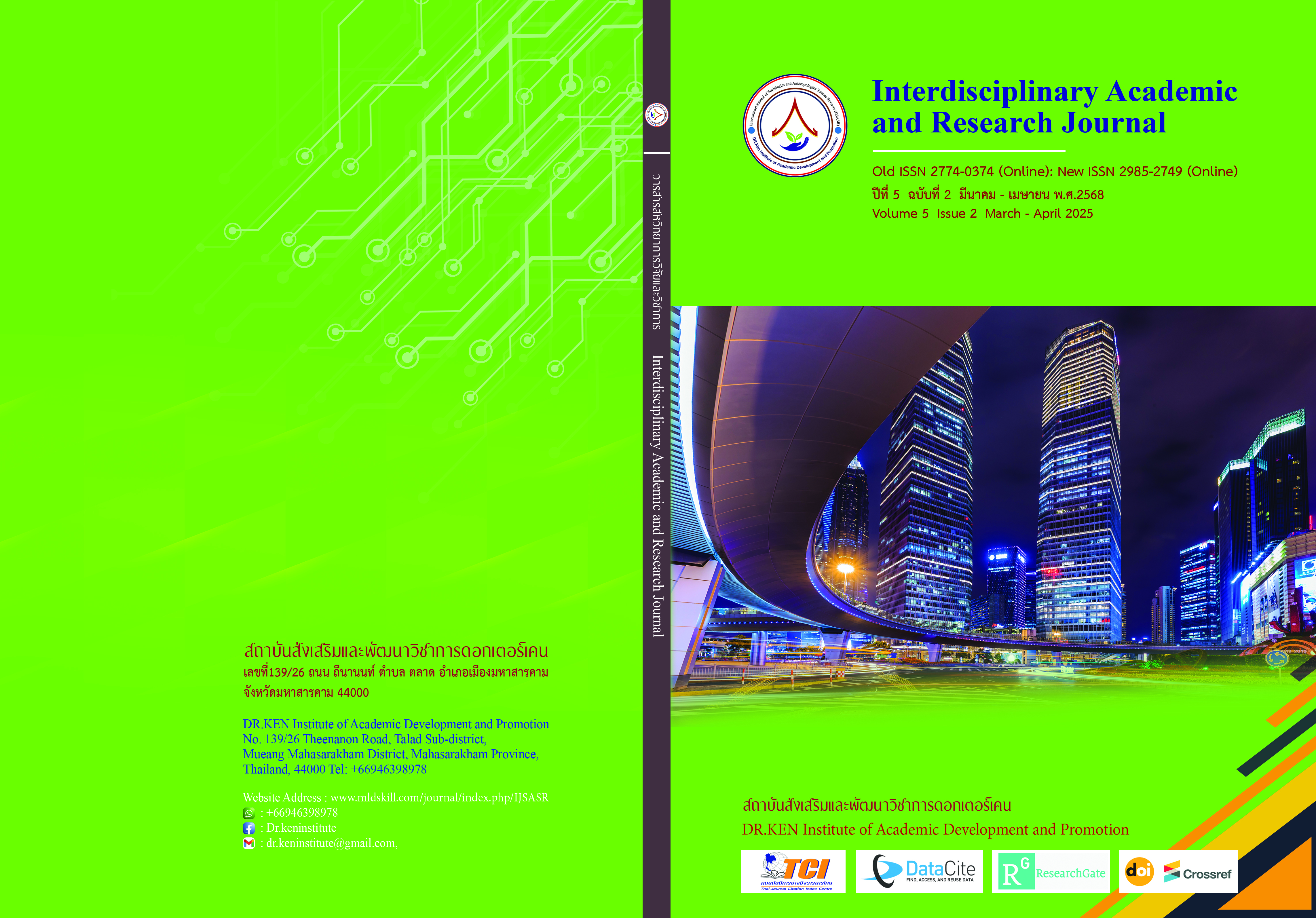The Development of a Program to Promote Self-directed Learning Abilities of Grade 6 Students
DOI:
https://doi.org/10.60027/iarj.2025.282249Keywords:
Program, Self-learning, 6th grade studentsAbstract
Background and Objectives: This research aimed to (1) study the guidelines for promoting self-learning ability of Grade 6 students, (2) develop a program to promote self-learning ability of Grade 6 students, (3) study the results of using the program to promote self-learning ability of Grade 6 students, and (4) evaluate the program to promote self-learning ability of Grade 6 students.
Research Methodology: This is a quantitative and qualitative research. The sample group is 25 sixth-grade students under the Office of the Primary Education Area in Roi Et Province and 6 experts by purposive sampling. The research instruments are semi-structured interviews, a program to promote self-knowledge seeking ability, a behavioral measure to promote self-knowledge seeking ability, an assessment form for the program to promote self-knowledge seeking ability, and an expert-based seminar. Data analysis uses content analysis. The statistics used are mean, standard deviation, and paired-sample t-test.
Results: (1) The results of the study on the guidelines for promoting self-learning ability of primary 6 students consisted of 4 main steps as follows: (1.1) Research topic determination (1.2) Goal setting (1.3) Research method determination and implementation (1.4) Forecasting results and actions (2) The results of the development of the program to promote self-learning ability of primary 6 students by the seminar meeting with experts showed that the program to promote self-learning ability was appropriate and feasible (3) The results of using the program to promote self-learning ability of primary 6 students showed that students were able to think and solve problems and (4) The evaluation of the program by the teacher who organized the activity had the highest mean. Therefore, it can be concluded that the developed program is appropriate to be used to promote self-learning for primary 6 students.
Conclusion: The guidelines for promoting the self-learning ability of primary 6 students consisted of 4 steps: research topic determination, goal setting, research method determination, and outcome prediction. The developed program was appropriate and feasible according to the evaluation by experts. The program helps students develop problem-solving skills. Teachers evaluated the program as the most appropriate. The program is appropriate for promoting self-learning for Prathom 6 students.
References
กระทรวงศึกษาธิการ. (2551). หลักสูตรแกนกลางการศึกษาขั้นพื้นฐาน พุทธศักราช 2551. กรุงเทพฯ: คุรุสภาลาดพร้าว.
ทิศนา แขมมณี. (2550). ศาสตร์การสอน: องค์ความรู้เพื่อการจัดการกระบวนการเรียนรู้ที่มีประสิทธิภาพ(พิมพ์ครั้งที่ 2). กรุงเทพฯ: จุฬาลงกรณ์.
พจนา ทรัพย์สมาน. (2549). การจัดการเรียนรู้โดยให้ผู้เรียนแสวงหาและค้นพบความรู้ด้วยตนเอง. กรุงเทพฯ: จุฬาลงกรณ์มหาวิทยาลัย.
อิศริยา ทองงาม. (2545). การพัฒนารูปแบบการเรียนการสอนแบบนําตนเองวิชาวิทยาศาสตรระดับปริญญาตรีเพื่อให้ผู้เรียนสามารถสรรค์สร้างความรู้ทางวิทยาศาสตร์. วิทยานิพนธ์ปริญญา ครุศาสตรดุษฎีบัณฑิต: จุฬาลงกรณ์มหาวิทยาลัย.
Birenbaum, M. (2002). Assessing self-directed active learning in primary schools. Journal of Educational Psychology, 94(3), 443-454.
Boyer, S.L., Edmondson, D.R., Artis, A.B., & Fleming, D. (2014). Self-directed learning: A tool for lifelong learning. Journal of Marketing Education, 36(1), 20-32.
De Corte, E., Verschaffel, L., Entwistle, N. and Van, M.J. (2004). Learning to solve complex problems: An instructional design perspective. Instructional Science, 32(4), 235–246.
Deci, E.L., & Ryan, R.M. (1985). Intrinsic motivation and self-determination in human behavior. New York, NY: Plenum.
Hiemstra, R. (1994). Self-directed learning. In T. Husen and T.N. Postlethwaite (Eds.), The International Encyclopedia of Education (2nd ed.). Oxford: Pergamon Press.
Knowles, M.S. (1975). Self-directed learning: A guide for learners and teachers. Chicago: Association Press.
Kuhlthau, C.C., Maniotes, L.K. and Caspari, A.K. (2015). Inquiry-based learning in school libraries. In P. Johnston and K. Hayes (Eds.), Guided inquiry design: A framework for inquiry in your school (pp. 75-92).
Sallis, J. F., Hovell, M. F., Hofstetter, C. R., & Barrington, E. (1992). Explanation of vigorous physical activity during two years using social learning variables. Social Science & Medicine, 34(1), 25–32. https://doi.org/10.1016/0277-9536(92)90063-V
Zimmerman, B. J. and Schunk, D. H. (2010). Self-Regulated Learning and Academic Achievement: Theoretical Perspectives (2nd ed.). Mahwah, NJ: Lawrence Erlbaum Associates.
Downloads
Published
How to Cite
Issue
Section
License
Copyright (c) 2025 Interdisciplinary Academic and Research Journal

This work is licensed under a Creative Commons Attribution-NonCommercial-NoDerivatives 4.0 International License.
Copyright on any article in the Interdisciplinary Academic and Research Journal is retained by the author(s) under the under the Creative Commons Attribution-NonCommercial-NoDerivatives 4.0 International License. Permission to use text, content, images, etc. of publication. Any user to read, download, copy, distribute, print, search, or link to the full texts of articles, crawl them for indexing, pass them as data to software, or use them for any other lawful purpose. But do not use it for commercial use or with the intent to benefit any business.
















.png)


